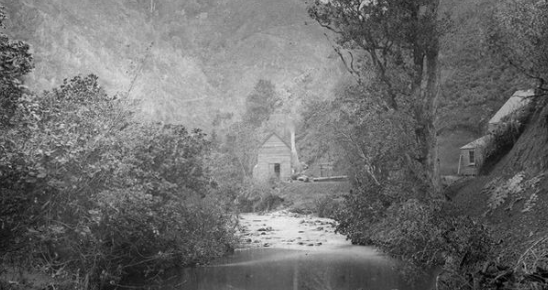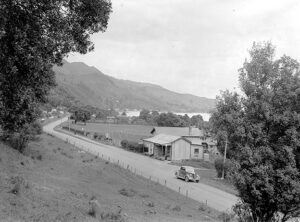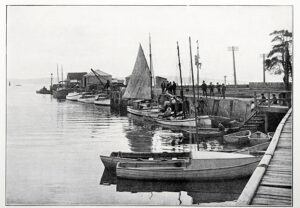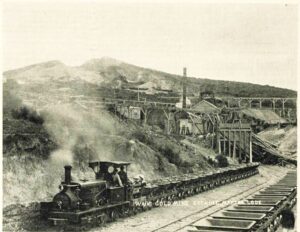As part of a Valley Profile series, MEGHAN HAWKES searches through old newspapers to bring you the stories Thames Valley locals once read about themselves.
1874
‘The masterly scrapings upon catgut’ by the Tapu postmaster, which made local folk dance and jump like whirling dervishes, were no more.
The postmaster had gone to Auckland with his fiddle, his wife, and his little ones. The baker had left for Shortland, with his horses, and cats, and dogs. The secretary of the Progress Committee, the midwife, sawyers, bush men and bullock drivers had all cleared out as well. As a sign of the times a hungry miner who asked “Is our butcher killing anything today?” received the reply of “A few fleas, perhaps”.
Meanwhile, All Fools’ Day was ushered in at Thames with great hilarity, especially at Scrip Corner where the fun was kept up until noon. The centre of attraction was the Bank of New Zealand where a miniature fishpond with a fountain was playing. A creature that had been brought from Pūkorokoro Miranda in the shape of a crayfish was occasionally leaping out of the water catching flies.
For hours, scores of people trooped in to view the wonder of the day. A helpful notice stated that the ‘perfect specimen’ had been found on the Miranda shore, was 21 inches long and had thirteen legs. For those looking closely among the rocks though, the claws of what appeared to be a crayfish did not move. The whole thing was a hoax, the curio nothing more than a lump of sealing wax artistically shaped to resemble a crayfish.

Over in Kōpū, the making of a harbour was under investigation and Mr Whisker’s land, the site of the old flax mill, looked a good position for a landing place. It was proposed to form a company in Auckland to construct a tramway from Shortland to Kōpū where all the upriver traffic would centre.
Vessels coming with cargo and passengers to these townships would go up to Kōpū. A landing place at either Kōpū or Totara Point looked to be an absolutely necessity if Ohinemuri were opened for gold prospecting and considerable river traffic had to be accommodated.
A friendly match of cricket between the Shortland and Grahamstown contingents of the Borough Fire Brigade was held at Pārāwai Gardens resulting in an easy victory for Shortland in one innings.
The teams were conveyed to the gardens in buses, and very little time was lost in arranging preliminaries. After the game, mutual expressions of regard were exchanged and the competitors returned to town. There was a good sprinkling of visitors at Pārāwai, the pleasant gardens being a favorite resort on Saturday afternoons.
A properly formed track between Thames and Coromandel was greatly needed to enable prospectors to have supplies sent to central stations. A track had been made three years previously but the rapid growth of native trees and shrubs had almost entirely obliterated it.
It would also be madness to attempt to ford or swim the many unbridged creeks during the tempestuous winter weather. Travellers who had crossed from Thames to Coromandel described the road as perfectly horrible and simply dreadful.




